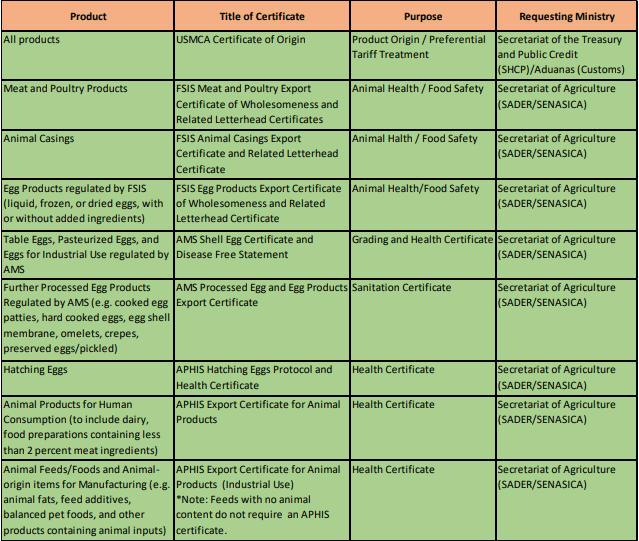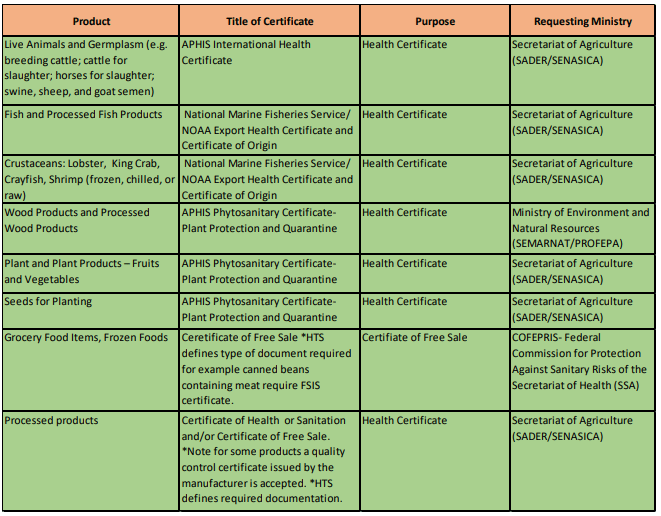The Department of Agriculture (USDA) published a list of the 17 United States export certificates required by the Mexican government.
In 2021, there were no significant changes regarding Mexican import rules and regulations.
However, due to recurring business problems related to documents accompanying agricultural shipments from the United States to Mexico, the USDA released a report that includes additional information.
The report illustrates examples of certificates under AMS’s Additional Processed Egg Product Verification Program (PEEPEV).
It also includes information that exporters must complete to allow their certificates of origin to qualify for preferential treatment under the Agreement between Mexico, the United States and Canada (USMCA).
List of All Export Certificates Required by The Government of Mexico (Matrix)


Exporters must comply with nine data elements in accordance with the prescribed formats.
In addition, it provides information to properly amend or reissue APHIS Export Certificates for Dairy Products for Human Consumption.
Export Certificates
USDA emphasizes the importance of verifying the inspection officer’s signature on export certificates and corresponding letterheads from the issuing agency: Food Safety and Inspection Service (FSIS), APHIS, and AMS.
In particular, shipments with different signatures increasingly face rejection by the National Health, Food Safety and Food Quality Service of Mexico (Senasica).
Additionally, US exporters are encouraged to periodically access the FAS database and review FAS Mexico GAIN reports to detect potential changes in regulations and standards throughout the year.
The competent Mexican authorities that regulate agricultural and food imports and / or require official export certificates from the United States include the Ministry of Agriculture, the Ministry of Health, the Ministry of Environment and Natural Resources, and the Ministry of Finance and Public Credit.
USMCA
Recently there were updates to the Agricultural Marketing Service (AMS) certificates for eggs and egg products scheduled to go into effect on January 1, 2022.
Additionally, Form 9060-5 for the Meat and Poultry Export Certificate of Health was updated by FSIS.
Lastly, the USMCA includes a specific USMCA Certificate of Origin, which eliminates the need for Customs and Border Protection (CBP) Form 434.
This allows the US exporter, importer or producer doing business with Mexico and Canada to generate the certificate in any format that complies with nine data elements: 1-5: Information about the certifier, exporter, producer and importer of the merchandise; 6: Description and classification of the harmonized tariff system of the merchandise at the 6-digit level. 7: The origin criteria under which the merchandise qualifies. 8: The general period (if the certification covers several shipments). 9: Authorized signature and date.
Mexico requires a certificate of origin to demonstrate that US products qualify for preferential tariff treatment under the USMCA. For additional information, see Chapter 5 Origination Procedures, Article 5.2 and Annex 5-A here.
![]()

